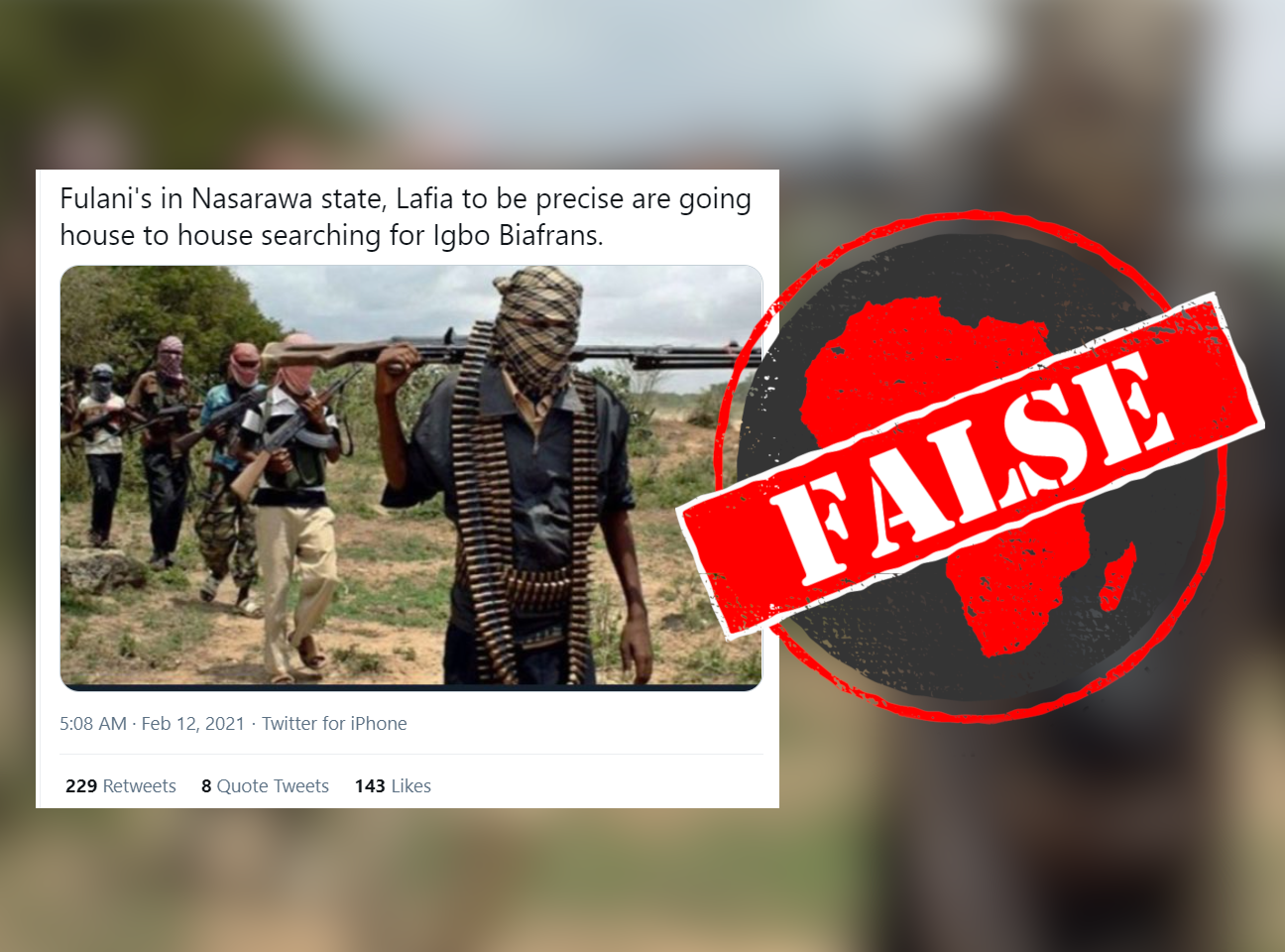“Fulani's in Nasarawa state, Lafia to be precise are going house to house searching for Igbo Biafrans,” reads a tweet posted in Nigeria on 11 February 2021. It includes a photo of armed and masked men walking through the bush.
The tweet has garnered more than 200 retweets.
Nasarawa state is in Nigeria’s north-central zone. The Fulani are a widely dispersed group of mainly Muslim people scattered across West Africa.
Fulanis in Nigeria have been accused of rape, kidnapping, robbery and murder. But some Fulani communities have in turn accused the media of stereotyping them.
Igbo people live mainly in Nigeria’s southeast.
In 1967, Igbo leaders declared an independent Biafran state. After a brutal civil war, which led to the deaths of up to a million people, the secessionist rebellion was defeated.
But the independence movement continues, spearheaded by the now-banned Indigenous People of Biafra and its leader, Nnamdi Kanu.
Africa Check has analysed how the pro-Biafra disinformation machine churns out fiction as facts.
Does the photo show Fulanis in Nasarawa state hunting down “Igbo Biafrans”?

Somalia in 2019
The photo in the tweet is more than a decade old, and not from Nigeria.
Using a reverse image search, we traced it to the Getty Images stock photo website.
Here the caption reads: “Somali hardline islamist Hisbul Islam militia walk past at a training camp on the outskirts of Afgoye district in Somalia's lower Shabelle region October 20, 2009.”
Africa Check searched Google News for the phrase “Fulanis in Nasarawa state going house to house searching for Igbo Biafrans”, and could find no reports of any such incidents.
There is no evidence that heavily armed Fulanis in Nigeria’s Nasarawa state went from house to house searching for Igbos.
Republish our content for free
For publishers: what to do if your post is rated false
A fact-checker has rated your Facebook or Instagram post as “false”, “altered”, “partly false” or “missing context”. This could have serious consequences. What do you do?
Click on our guide for the steps you should follow.
Publishers guideAfrica Check teams up with Facebook
Africa Check is a partner in Meta's third-party fact-checking programme to help stop the spread of false information on social media.
The content we rate as “false” will be downgraded on Facebook and Instagram. This means fewer people will see it.
You can also help identify false information on Facebook. This guide explains how.


Add new comment